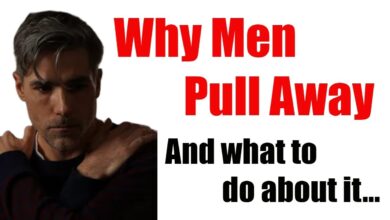
Introduction: When Pride Walks into Love
Every romantic relationship starts with passion, laughter, and a desire to connect. Yet, beneath the surface, an invisible force shapes the way men love, argue, and bond—the male ego.
The male ego isn’t simply arrogance or stubborn pride. It’s the part of a man’s identity tied to respect, competence, and worth. When balanced, it builds security and fuels intimacy. When unchecked, it becomes a wall that blocks emotional closeness.
This article explores the truth about male ego in love: its strengths, its flaws, and how couples can navigate it without losing the essence of their relationship.
What Is the Male Ego?
The male ego is best described as the emotional framework that supports how a man perceives himself. It is not always loud or aggressive—it can be quiet, hidden, and deeply personal.
At its core, it revolves around three needs:
- Respect: To feel valued by his partner.
- Competence: To believe he is capable of solving problems and leading when necessary.
- Admiration: To know his contributions are recognized and appreciated.
This ego can either motivate growth or create friction. The outcome depends on how it’s managed in the relationship.
When Ego Becomes a Strength in Love
Not all ego is toxic. In fact, a healthy male ego can deepen intimacy and connection.
- Confidence in the Relationship: A secure man reassures his partner by standing firm in himself.
- Protective Drive: Ego pushes him to create stability—financially, emotionally, or socially.
- Pride in Partnership: Many men tie their self-worth to how well they treat their partner, fueling acts of love and commitment.
Here, ego works as a builder of love—an anchor that keeps a man steady in his role as partner and supporter.
When Ego Turns Into a Barrier
The male ego, when balanced, acts as a shield of confidence—it encourages ambition, fuels love, and creates stability in relationships. But when that shield grows too thick or too fragile, it transforms into a barrier. Instead of protecting intimacy, it blocks it. Instead of inspiring connection, it creates distance.
Many couples don’t notice this shift immediately. It begins subtly: a refusal to admit fault here, a defensive reaction there, an unwillingness to listen in the middle of conflict. Over time, these small ego-driven choices build invisible walls that slowly push partners apart.
1. The Barrier of Defensiveness
One of the first signs that ego has turned into a barrier is constant defensiveness.
- A partner brings up a concern, but instead of listening, the man feels attacked.
- Simple feedback like “I wish you’d help more around the house” becomes an accusation in his ears.
- The ego whispers: “She doesn’t respect you. She thinks you’re failing.”
This defensiveness prevents genuine dialogue. Instead of solving problems, couples argue about tone, blame, or “who started it.”
2. The Barrier of Pride and Refusal to Apologize
Ego resists accountability. For many men, saying “I’m sorry” feels like surrender, as if admitting fault strips away respect.
But here’s the paradox: refusing to apologize erodes more respect than humility ever will. Over time, pride hardens into silence, leaving unresolved issues to fester beneath the surface.
Scenario:
- A man forgets an anniversary. Instead of admitting he messed up, he insists, “You’re overreacting. It’s just a date.”
- His partner feels dismissed and unloved.
- The problem is no longer about the date—it’s about the wound pride inflicted by denying responsibility.
3. The Barrier of Jealousy and Insecurity
A fragile ego sees a partner’s success as competition rather than celebration. When she shines, he feels overshadowed.
- She earns a promotion; instead of being proud, he withdraws.
- She receives admiration from others; instead of feeling secure, he accuses her of seeking attention.
This barrier creates unnecessary rivalry in the relationship. Love turns into a competition instead of a partnership.
4. The Barrier of Silence and Withdrawal
Sometimes ego doesn’t shout—it hides. Many men, when their ego feels bruised, retreat into silence. It’s not indifference; it’s protection. Silence becomes a wall.
But for the partner on the other side, that silence feels like neglect. Conversations dry up. Vulnerability vanishes. Emotional intimacy withers.
👉 Silence may preserve ego, but it starves love.
5. The Barrier of Control and Dominance
When ego feels threatened, it often seeks control. Some men respond to insecurity by asserting dominance:
- Dismissing their partner’s opinions.
- Making unilateral decisions.
- Using anger or authority to “win” arguments.
This creates imbalance. Love cannot thrive where one partner feels silenced, small, or overpowered.
6. The Hidden Barrier: Fear of Vulnerability
At the heart of every ego barrier lies fear—the fear of being seen as weak, unworthy, or not enough.
- Instead of admitting, “I’m scared of losing you,” ego says, “You don’t appreciate me.”
- Instead of asking, “Can you reassure me?” ego demands, “Why are you always so distant?”
The fear is human. But when ego masks it, the relationship loses honesty.
The Emotional Cost of Ego Barriers
When ego consistently stands between partners, the costs are heavy:
- Resentment grows because one partner feels unheard.
- Distance replaces closeness as conversations become battles.
- Trust erodes when pride takes precedence over accountability.
- Love deteriorates, not because of lack of affection, but because the wall of ego blocks its expression.
A Simple Truth
Ego is not evil. Every human being has one. But when it grows unchecked, it becomes a wall that even love struggles to climb. The strongest relationships aren’t those without ego—they are the ones where both partners recognize it, manage it, and choose connection over pride.
Key Takeaway:
When ego turns into a barrier, it no longer protects—it isolates. Couples who learn to step around pride and lean into humility create bonds that last, while those who let ego dominate risk losing the intimacy they crave most.
Why Ego Feels Threatened in Relationships
Romantic love often shakes the ego more than anything else in life. Why?
- Childhood Conditioning – Many men grow up hearing: “Be strong, don’t cry, don’t show weakness.” Vulnerability, then, feels unnatural.
- Fear of Losing Control – Modern relationships thrive on equality. For some men, this challenges old beliefs about being the leader.
- Emotional Risk – Criticism from a romantic partner cuts deeper than from a friend or colleague because it threatens identity.
Love makes ego fragile because it touches the very core of self-worth.
Male Ego vs. Female Ego: A Subtle but Crucial Difference
| Dimension | Male Ego | Female Ego |
|---|---|---|
| Core Trigger | Respect and competence | Love and emotional attention |
| Usual Reaction | Defensiveness, withdrawal, or dominance | Criticism, silence, or over-explaining |
| Underlying Fear | Being seen as weak or incapable | Being unloved or unwanted |
| Best Remedy | Acknowledgment, respect, appreciation | Emotional reassurance and validation |
All gender have egos. The difference lies in what fuels them and how they react when hurt. Recognizing these differences helps couples avoid unnecessary clashes.
How Ego Shapes Everyday Conflicts
Ego has the power to magnify small arguments into emotional battles.
Example 1: Forgetting a Special Occasion
- Healthy ego: “You’re right, I forgot. I’ll make it up to you.”
- Wounded ego: “Why are you always nagging? I work so hard already!”
Example 2: Partner’s Success
- Healthy ego: “I’m so proud of you!”
- Fragile ego: “So now you think you’re better than me?”
Same scenario, different ego responses—one fosters intimacy, the other drives resentment.
Ego and Emotional Intimacy
Intimacy is built on vulnerability. Ego often resists because vulnerability feels like surrender.
- Over-inflated ego: avoids vulnerability altogether, creating distance.
- Fragile ego: constantly demands validation, draining the relationship.
- Balanced ego: embraces openness, creating trust and emotional safety.
The lesson? Intimacy grows when ego is managed, not when it dominates.
How Ego Breaks Communication
Communication is the heartbeat of love. Ego disrupts it by pushing men to defend rather than listen.
Ego-driven communication looks like:
- Interrupting to prove a point.
- Avoiding tough conversations to save pride.
- Dismissing feelings as irrational.
- Turning discussions into competitions.
In these moments, couples talk at each other, not with each other.
How Women Respond to Male Ego
Women often adjust their behavior when faced with a man’s ego.
- Silence: to avoid conflict, though it creates distance.
- Over-accommodation: to protect his pride, though it breeds resentment.
- Criticism: to push him out of defensiveness, though it triggers more ego.
These responses, though natural, often intensify the very problem they aim to solve.
The Emotional Toll of Unchecked Ego
If ego is left to run unchecked, the damage can be profound.
- Resentment: builds when one partner feels unheard.
- Emotional Distance: replaces intimacy with cold politeness.
- Erosion of Trust: happens when apology and accountability vanish.
- Breakdowns: from prolonged ego-driven fights often lead to breakups or divorce (source).
Unchecked ego doesn’t just hurt—it suffocates the relationship.
Respect: The Ego’s Soothing Balm
Respect is the language that calms male ego. Without it, men feel rejected. With it, they thrive.
Respect doesn’t mean blind obedience. It means:
- Choosing careful words in conflict.
- Appreciating effort, not just outcomes.
- Disagreeing without belittling.
When respect is present, ego softens, and real dialogue begins.
How Ego Changes Over Time in Relationships
1. Dating Stage: Ego as a Performance Tool
At the start of a relationship, ego often shows up as charm and self-presentation.
- Men want to impress, so ego fuels confidence, effort, and persistence.
- There’s pride in being seen as desirable and capable.
- Vulnerability is often hidden, because showing weakness feels like risking rejection.
👉 At this stage, ego is about winning affection.
2. Early Commitment or Marriage: Ego Meets Adjustment
When the excitement of dating shifts into commitment, ego faces new challenges.
- Men may struggle with sharing space, decisions, and responsibilities.
- Ego can resist criticism, especially around financial or domestic roles.
- Disagreements about roles (“Who should lead?” “Who decides what?”) can trigger defensiveness.
👉 Here, ego either adapts to teamwork or fights to maintain control.
3. Parenthood Stage: Ego and Provision
When children arrive, ego often ties itself to protection and provision.
- Men may feel pressured to “provide” and prove competence.
- Any suggestion they’re not doing enough can feel like an attack on identity.
- Ego may also compete with the partner’s attention, as love is now shared with children.
👉 Ego here is about responsibility and significance.
4. Mid-Life Relationship: Ego vs. Growth
As couples grow older, careers, health, and personal dreams evolve. Ego shifts again.
- Men may struggle if their partner’s success outpaces theirs.
- Ego might react defensively to aging, reduced energy, or financial stress.
- Some egos mellow, realizing companionship matters more than dominance.
👉 Ego begins questioning: “Am I still valuable? Am I still enough?”
Relationships Softens into Companionship
In older relationships, ego often softens.
- Men tend to prioritize peace, stability, and shared memories.
- The drive to dominate or always “win” arguments weakens.
- Ego takes pride in longevity—“we made it through.”
👉 Here, ego becomes more about legacy and companionship than competition.
Summary Table: How Ego Evolves
| Stage | Ego Expression | Key Trigger | Relationship Impact |
|---|---|---|---|
| Dating | Charm, effort, pride in impressing | Desire to be admired | Builds attraction |
| Early Marriage | Defensiveness, control, adjustment | Sharing roles | Can cause friction |
| Parenthood | Provision, protection, significance | Pressure to provide | Strengthens or strains bond |
| Mid-Life | Competition, insecurity, mellowing | Success, aging, stress | Can breed distance or growth |
| Later Years | Companionship, legacy, softening | Peace, memory, aging | Deep intimacy and understanding |
Key Insight: Ego doesn’t vanish—it evolves. In early love, it performs. In parenthood, it provides. In later years, it softens. The healthiest relationships adapt with it instead of fighting against it.
Culture and the Male Ego
Culture heavily shapes how men express ego.
- Western societies: prize independence, sometimes amplifying ego.
- Eastern traditions: tie ego to family honor and duty.
- African perspectives: often link ego to provision, masculinity, and protection.
Despite these differences, the universal truth is that ego thrives on recognition and withers without it.
Stories of Ego in Action
- The Silent Wall
John went quiet every time his wife pointed out mistakes. She thought he didn’t care, but his silence was his ego shielding him from shame. - The Career Rivalry
When his partner got promoted, David reacted with jealousy instead of pride. His ego turned her achievement into his insecurity. - The Balanced Man
Michael, however, admitted when he was wrong, celebrated his partner’s success, and still felt respected. His ego was present—but healthy.
These stories prove that ego itself isn’t the problem. It’s how it is handled that determines whether love grows or dies.
Power, Ego, and Equality in Love
Traditional roles place men as providers and leaders. But modern love emphasizes equality. For some men, this shift feels like a threat to ego.
When ego resists equality, love suffers. True power in relationships is not control—it’s the ability to love without fear of losing respect.
Can Ego Disappear?
The truth: ego never disappears. Nor should it. Ego is tied to self-respect, confidence, and drive. The goal is not elimination but balance. When ego coexists with humility, relationships flourish.
Conclusion: Beyond Ego, Toward Real Love
The male ego is both a blessing and a burden. It fuels confidence, pride, and love when balanced. But when unchecked, it becomes a wall that blocks vulnerability, intimacy, and trust.
The truth about male ego in romantic relationships is this: it doesn’t have to be the enemy of love. With respect, empathy, and awareness, couples can turn ego into a bridge instead of a barrier.
Lasting love isn’t about silencing ego—it’s about ensuring pride never speaks louder than affection.









